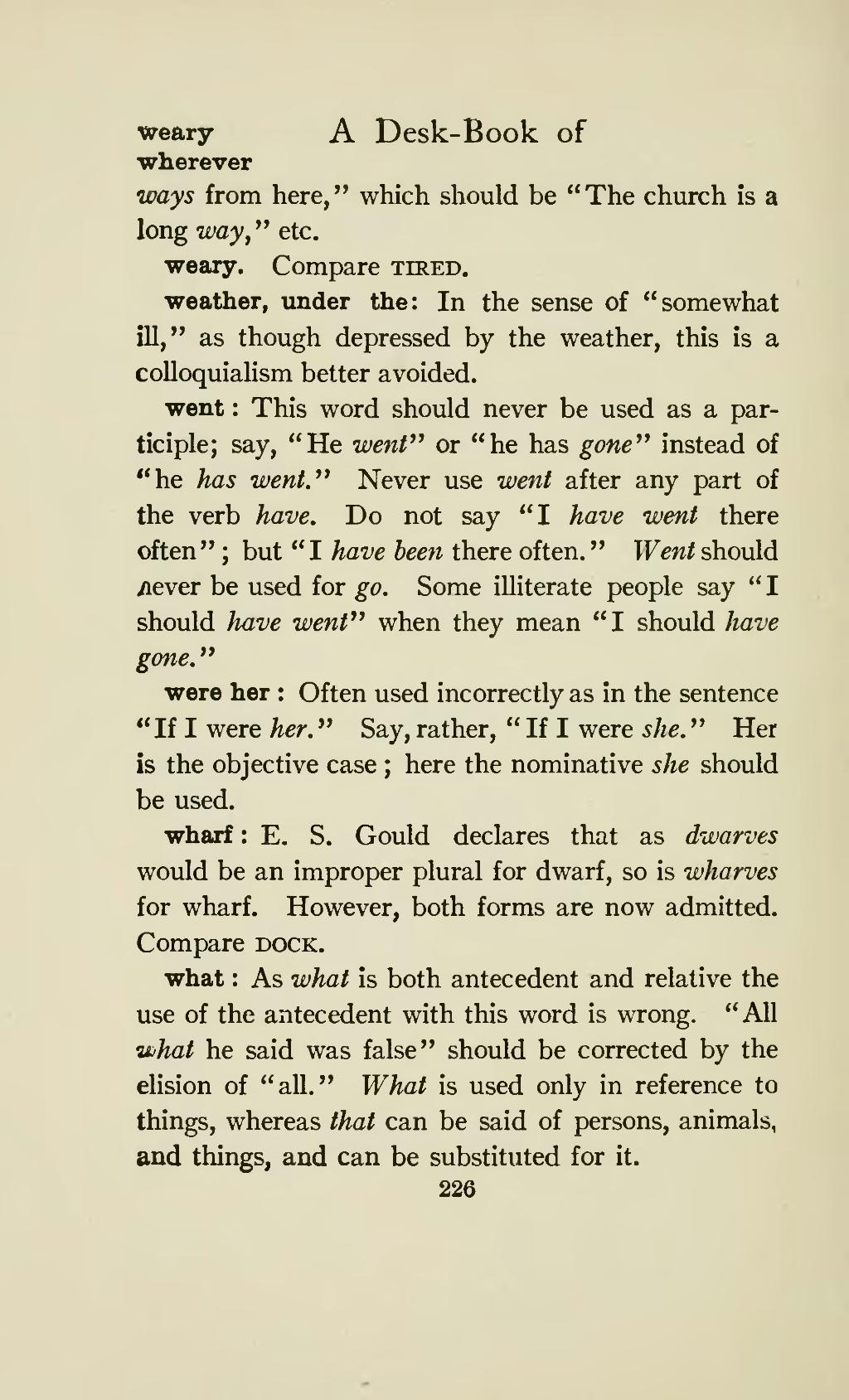wherever
ways from here," which should be "The church is a long way," etc.
weary. Compare tired.
weather, under the: In the sense of "somewhat ill," as though depressed by the weather, this is a colloquialism better avoided.
went: This word should never be used as a participle; say, "He went" or "he has gone" instead of "he has went." Never use went after any part of the verb have. Do not say "I have went there often"; but "I have been there often." Went should never be used for go. Some illiterate people say "I should have went" when they mean "I should have gone."
were her: Often used incorrectly as in the sentence "If I were her." Say, rather, "If I were she." Her is the objective case; here the nominative she should be used.
wharf: E. S. Gould declares that as dwarves would be an improper plural for dwarf, so is wharves for wharf. However, both forms are now admitted. Compare dock.
what: As what is both antecedent and relative the use of the antecedent with this word is wrong. "All what he said was false" should be corrected by the elision of "all." What is used only in reference to things, whereas that can be said of persons, animals, and things, and can be substituted for it.
226
